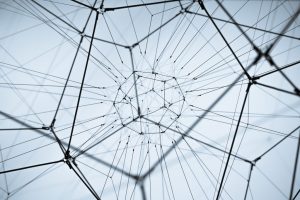A national goal for open scholarship
Finland is among the many countries that have a vision of moving towards more open scholarship. The journey toward open scholarship was started in 2014-2017 by the Open Science and Research project of the Ministry of Education and Culture, after which the coordination work was passed on to the Federation of Finnish Learned Societies. This Open Science National Coordination has brought together researchers, universities, libraries, funding bodies, archives, and publishers to work together towards the common goal. There are four expert panels : “Culture of open scholarship”, “Open data”, “Open access” and “Open education”, that invite all interested parties and have dozens of working groups to address a diverse selection of issues.
The first goal post was reached in December 2019, with the Declaration for open science and research, which has since been signed by 66 organizations. It presents a vision for the whole Finnish research community in which open science and research has become an integral part of the researcher’s everyday work where the fundamental value of openness improves the quality and societal impact of the research outputs.
This declaration is to be followed by four policies to outline the strategic principles, objectives and action plans necessary to achieve the objectives set out in the Declaration. The first part to be completed was the policy Open access to scholarly publications – National policy and executive plan by the research community in Finland for 2020–2025; this will be completed with policy components for monographs, professional publications and non-textual research publications. Then came the Policy for the Open Education and Educational Resources, to be completed with a policy component on open educational practices. The policy for Open Scholarship and The policy for Open Access to Research Data and Methods are at drafting or commenting stage. All the documents will be supplemented by guidelines and recommendations, with more detailed instructions for each subject. All the documents are accessible for the whole community to comment on and have been discussed in several open workshops, thus even better incorporating the community’s voice in the finalized texts.
National consortium negotiates Read & Write agreements
FinELib, the Finnish national consortium for acquiring electronic resources, has also been negotiating open access elements into the journal package deals. Currently, there are 12 agreements with open access elements, including Read & Write agreements with major publishers like Elsevier, Springer, Taylor & Francis and Wiley. Some of the agreements (Wiley, Emerald, SAGE, ACS, and IEEE) cover both hybrid and fully Open Access journals; in other agreements, Open Access publishing is limited to hybrid journals only.
These negotiations have had a great impact on the openness of research outcomes. The number of research articles opened due to the consortium agreements has risen from just 214 in 2017 to almost 2900 in 2020. A 65 % rise in open articles from 2019 to 2020 was spurred by the long-negotiated transformative agreements with Taylor & Francis and Wiley. The newly minted Elsevier agreement for 2021-2023 is expected to almost double the amount of open publications.
The road ahead
Whereas many steps have been taken towards a more open scientific world, the work continues. The national expert panels will engage the community in forming the rest of the policy documents and recommendations. The universities and other research organizations are updating their own policies and ensuring that researchers have all the support they need to conduct research in an open way, including open data management, open access publishing and the tools for more open teaching practices. As we can see, a shift in the culture of research and education is slowly taking place.
Mari Aaltonen
Head of Library Resources
Aalto University
Finland
Email: [email protected]
